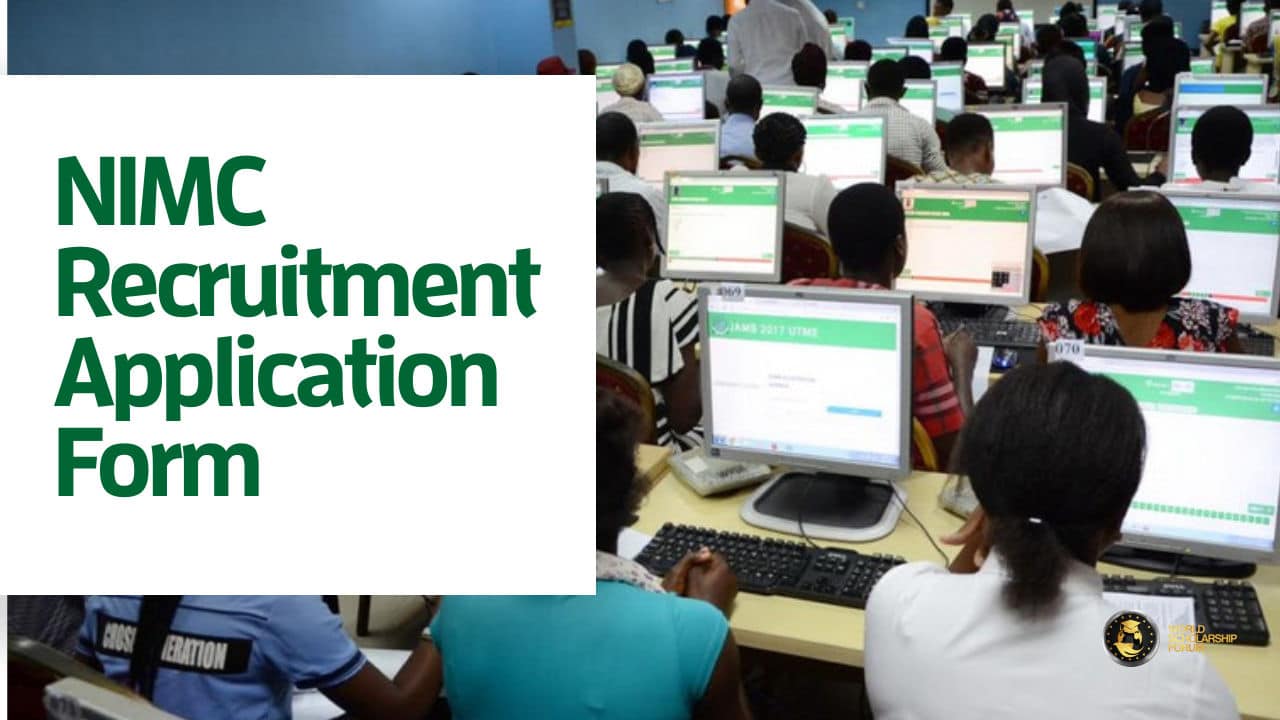Becoming a police officer is a great way to give back to the community. However, working effectively as a cop requires adequate training to prepare you for the responsibility of protecting lives and property.
You know, contrary to what I used to think, that cops were only cool in the movies, there are really incredible police officers that give their all to curb crime and deliver justice in the real world.
But, to be a top-notch police officer requires a lot of rigorous training and not for the feeble-hearted. This job is no-jokes!!
So, in this post, you are gonna learn all you need to know about starting a career as a cop and training that is required of you.
Table of contents
- Who Is A Police Officer?
- What Is The Job Description Of A Police Officer?
- Where Do Police Officers Work?
- Difference Between A Police Officer And A Police Detective?
- How Much Can I Earn As A Police Officer? | Salary and Job Outlook
- How To Prepare To Become A Police Officer
- Police Officer Educational Requirement
- How to Prepare To Enroll in a Police Academy?
- Enrolling in a Police academy
- Field Training
- What Is The Cost of Becoming A Police Officer?
- How Can You Become a Police Officer in the US? | Practical Steps
- Conclusion
- References
- Recommendations
Who Is A Police Officer?
A police officer is a sworn law enforcement professional who has the job of protecting and serving the communities in which they live and work.
Therefore, amongst other duties, he enforces laws, obtains warrants, arrests and interview suspects, secure crime and accident scenes, crafts detailed reports and testifies in court.
Police officers are generally the front line defense against crimes in any community. They are professionals at what they so much that society relies on them for protection.
What Is The Job Description Of A Police Officer?
The primary duty of a police officer is to protect people and property. Common duties of police include:
- controlling traffic
- patrolling neighborhoods
- responding to emergency calls
- writing citations
- delivering warrants
- arresting violators and submitting incident reports in a timely manner.
- engage in collaborative actions to ensure that tasks are handled according to protocol and in a timely and safe fashion.
- enforce applicable state laws as required
- investigate incidents and accidents
Even as a senior officer in the police force, roles vary. You perform the following tasks:
- Assign police work of varying difficulty
- Deploy staff for community engagement
- Investigate complex cases
- Conduct internal investigations
- Ensure that officers follow procedural regulations
- Review case histories of all stakeholders on a case as required
- Provide directives to officers about policy development
Where Do Police Officers Work?
In the United States, police officers are employed at the federal, state, and local levels, although federal police officers are more commonly called law enforcement agents.
Also, police officers can be recruited in the private sector as security consultants and even official escorts.
Read more: A full guide on how to become an FBI agent.
Difference Between A Police Officer And A Police Detective?
Though this may often be used interchangeably, the two are not just the same. A police detective or criminal investigator is obviously a police officer because he was first trained to become an officer before the detective training. What this means is that not all police officers are detectives but unarguably all police detectives are police officers. This is because detectives go through normal police training and additional detectives’ training.
Usually, in the right work order, police officers lay a background foundation for the detective to do his work. Just imagine a scenario where there was a murder case: a man was shot by an unknown gunman in a certain location, everyone around the location flees the scene of the crime. Shortly after, the cops arrive at the crime scene, secures the arena, takes photographs and asks a few questions. After these processes, it is now the duty and job of the detectives to use possible leads to track who the culprit might be.
So, you must become an effective police officer to make a great detective.
How Much Can I Earn As A Police Officer? | Salary and Job Outlook
According to the Bureau of Labor Statistics, the average cop earns about $63,380 per year or roughly $30.47 per hour. So, the lowest 10 percent earn less than $36,550, and the highest 10 percent earn more than $106,090.
Also, it’s important to note that the salaries of police officers are based on mainly experience, skills and training, and most especially geography. Here are a few career levels listed below.
| LAW ENFORCEMENT CAREER LEVELS | MEDIAN SALARY |
| POLICE SUPERVISORS | $82,090 |
| TRANSIT POLICE | $59,670 |
| FISH AND GAME WARDEN | $52,780 |
| PRIVATE INVESTIGATOR | $45,610 |
| DETECTIVE | $77,210 |
| BAILIFF | $41,670 |
Moreso, it has been currently estimated that employment for police officers will grow by 5% before 2028. So this indicates that there are still needs for more cops in the U.S.
However, the level of government spending determines the level of employment for police and detectives. So, the number of job opportunities can vary yearly and from place to place.
How To Prepare To Become A Police Officer
Of course, it doesn’t just end in saying “I want to be a police officer!”
Are you ready to commit to becoming the best cop ever?
Yeah! A high school diploma is often the minimum formal education required. And even if, an associate’s, bachelor’s or graduate degree might not be needed, having one increases how likely you are to get hired as a police officer. But, extensive and specialized training is required. And police academies often provide this training on the local, regional or state levels.
Police Officer Educational Requirement
Of course, you will need the right education and experience to grow up into a fine cop. So, here are some places that can give you a great educational background needed to become a cop.
- MILITARY – Of course, having a military background is highly respected like law enforcement agencies.
- COMMUNITY COLLEGE – These schools allow you to complete an associate degree or earn a certificate in a few months.
- LAW ENFORCEMENT SCHOOL – These are schools that specialize in training law enforcement officers. Their curriculum covers laws, how to make arrests, tactics, first aid and so on.
- 4-YEAR SCHOOLS – Even if a bachelor’s degree may not be required, having that certificate qualifies you for a higher position and also higher pay in the police force.
Often times, the police department would want a candidate that has a certificate in any of the following disciplines:
- CRIMINOLOGY
- CRIMINAL JUSTICE SYSTEM
- CORRECTIONS
Other Criteria
You don’t just become a police officer by wishful thinking. So, asides from having an educational background, some basic skills can qualify you to become a cop in the United States.
- You must be a U.S citizen from the age of 18.
- You must be physically and mentally fit.
- Also, you must possess leadership traits
- You must know how to read people
- You must also have a good sense of judgment
- Most of all, you must have a clean record, because a background investigation and urinalysis will be carried out.
- And of course, a military background is a huge advantage
How to Prepare To Enroll in a Police Academy?
Some departments can recruit candidates with no experience but at least a high school diploma. But, most police departments require you to undergo training in the police academy to prepare you for the ethics and rigors of being a cop.
So, first and foremost, you must be prepared if you want to pass the exam to be enrolled in the police academy.
Here are some tests you should prepare your mind for:
Basic Abilities Test
Before getting into the police academy and being hired into law enforcement, you will be required to write a basic abilities test. This measures your cognitive reasoning, reading, and problem-solving skills.
This test is to ascertain whether you can successfully complete your police training. For this reason, it is wise to review the sample questions and test materials provided for you.
Physical Assessment
This test ensures that you are in great physical shape to take on the training dished out at the police academy. The fitness test comprises an overall assessment including sit-ups, push-ups, sprints, and long-distance runs. Also, you might be required to take an obstacle course. So, be ready!
Medical Physical Exam
Even after the physical assessment, you might need to be examined by a doctor to be sure you are healthy enough to undergo the police academy training.
You would also need to take a separate eye exam to check your overall vision.
Polygraph Exam
Most police departments will require you to undergo a polygraph exam to determine your level of honesty to ascertain whether what you wrote in your application is true.
Here, applicants are hooked up to a polygraph instrument and asked a series of “yes or no” questions to detect truthfulness or deception.
Psychological Exam
Of course, not all departments require a psychological assessment. Here, your mind is assessed through sessions to find out if you are mentally and emotionally fit for the training.
Enrolling in a Police academy
Before you get to this stage you must have known what it takes to become a cop. At the police academy, you are prepared for the rigors of one of the world’s most stressful, high-stakes, and intense occupations.
Police academies consist of several weeks of specialized training in the following areas:
- Firearms
- Defensive tactics
- Law and legal concepts
- Report writing
- First aid
- Criminal and crime scene investigation
Generally, police training academy can come before or after being hired as a cop. So, it’s important to stay fit and sharp to pass the tests along the way.
Also, studying is vital because failing in any academic or practical are can lead to your failing the entire academy.
Field Training
Even after graduating from the police academy, learning doesn’t end. You move to the field training program.
Here, you will learn how to work on the streets as a cop. As you take on more responsibility during the course of your training evaluation, your wits and wisdom on the job increases.
When you finish field training, the real learning begins as you are hired as a cop patrolling the streets on your own.
What Is The Cost of Becoming A Police Officer?
From research, the cost of enrolling in Police academy is usually total less than $5,000, and some police departments will reimburse a percentage of that tuition upon employment. After receiving your certification, you can then apply to become a police officer in that state.
Also to get a better police career level or higher pay, you can opt to get a college degree in Criminology or Criminal Justice. And, the average out-of-state cost for a bachelor program in Criminal Justice/Law Enforcement Administration is $31,914 with an estimated average four-year degree total cost of $127,656.
How Can You Become a Police Officer in the US? | Practical Steps
In this section, you would find precise steps that will guide you in having a successful career in crime detection.
Take your time and explore the steps below:
Complete Your High School Education
For you to become a police officer especially in the US, you must complete your secondary education and also complete a post-high school program. It could be an associate’s program, a bachelor’s degree program. Quickly see the next step.
Take A Post-Secondary Education (Optional)
It is in your post-secondary education that you will acquire some of the skills you would really require for a successful practice. So it would be essential that you don’t just stop at completing your secondary education but also enrolling in an advanced degree program.
In your post-secondary program, you may decide to take an associate’s degree program or a bachelor’s degree. The truth is that you will always find programs to do even to doctoral levels. It is also imperative that you take a foreign language course.
As a detective, you would definitely meet people from different tribes and races and you may need to speak their language.
Courses that lead to a career in law enforcement that you may take include Criminal justice, crime investigation, criminology, forensic psychology, human relations, criminal law, etc.
Apply for a Position
If you wish to join the police force must realize that completing patrol routines and reacting to incident reports are not all there is to be a police officer. These days, law enforcers are expected to be more proactive in encouraging community participation toward the success of crime-prevention and crime-suppression initiatives.
After taking the screening test, then follow the next steps.
Enroll in a Police Academy for Training
It is very important that you also enroll in a police training academy where expert officers will duly train you on issues of security concerns.
Here you will also get a hands-on-training of some of the basic assault and defense techniques needed to escape troubles when on duty. They include a mixture of physical training and classroom study in areas such as firearm training, search and seizure, self-defense, traffic control, and first aid. It is also important that you get a clear understanding of state and local law.
This training can last up to six months.
Pass The Law Enforcement Entrance Exam
Before you are admitted into a police academy, you must achieve a passing score on an entrance exam. The exact entrance exam taken will depend on the police academy and jurisdiction. Some of the tests given include Asset, Compass, and LEE (Law Enforcement Examination).
Get Sworn in
At the beginning of a policing career, you take their sworn oath of office. You will recite this important vow before department administrators, colleagues, and/or authorized witnesses. And also, sign the written version of the oath as proof that they have formally committed to the service.
Now, you become bona fide police officers, who can exercise full authority on matters of maintaining peace, order, and public safety in their respective jurisdictions.
Your tools and badges will then be handed to you to start your first assignment.
Work Out To Develop Physical Fitness
In your work as a cop, you may get into situations where you will really need to exert a lot of physical strength probably in self-defense or in the hot pursuit of a dangerous criminal. So you would need to build yourself to gain stamina and strength. You may also need to climb heights, crawl through tunnels. All of these may require strength.
Add More Skills To Your Skill Set
Adding more skills to your skillset will definitely make you outstanding in your work. This is because you will know how to proffer solutions to any challenge that may arise. It is important you learn how to drive. It is important to learn how to administer simple first aid. Getting advanced computer and technology skills will surely make you the go-to guy in your field.
Work Towards a Promotion
So long as it’s within your reach, always try to improve yourself in your chosen. Attend any training meant to boost your experience and get certified.
Pay increases with a promotion, but so does the level of responsibility and potential bureaucracy.
Once some experience requirements are met (3-5 years usually), officers have a variety of opportunities. These include positions such as detective, mounted officer, SWAT, and other focused units, depending on the size and needs of a given police department.
Conclusion
A career as a police officer is not an easy one. But, irrespective of the rigors and challenges associated with being a cop, with the will and adequate training, it is a rewarding profession.
References
- The Balance Careers – Are you qualified to be a Police Officer?
- Learn how to Become – How to Become a Police Officer
- Criminal justice Degree schools – Police Officer: Career Guide
- Correctional officer – Police officer





